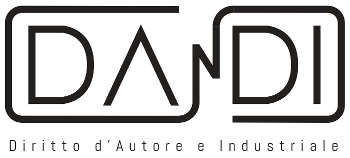Reform proposals digital single market. In a series of announcements, the EU Commission has launched several reform proposals around its idea of a digital single market. Important changes are proposed in particular for copyright and telecoms regulation.
Reform proposals digital single market. New copyright reform proposals
The European Commission has launched its most wide-ranging, and controversial, package of reforms to the EU copyright regime since it started its Digital Single Market project in late 2015. While the latest proposals had been leaked over the past few weeks, there are number of significant changes made to them in the official version of the reforms published today, 14 September 2016.
Anyone looking for an overarching attempt to recast copyright law or alter the overall balance between rights holders and platforms will be disappointed. Instead, we see issue-specific reforms touching on a number of areas of copyright. What we can expect to see in the next couple of years is a European copyright regime which, from the surface, looks similar to what we currently have but has been amended in significant ways in numerous pockets, of which amongst the most controversial and high-profile will be (i) a new right for press publishers to prevent online uses of their publications; (ii) imposing extra obligations on platforms who seek to rely on the EU’s safe harbour protection; (iii) country of origin rights clearance for broadcasters’ online simulcasting and catch-up; and (iv) measures to improve the position of authors under contracts for the commercialisation of their works.
There are also new proposals about non-commercial text data mining, and those concerning content portability and geo-blocking from earlier this year. The copyright reform project is finally taking shape.
Reform proposals digital single market. New right for press publishers
Member states will be required to provide “publishers of press publications” with the reproduction and making available to the public rights already provided to authors, performers, film and record producers and broadcasters “for the online use of their press publications”.
It is intended to provide press publishers with an additional legal right on which they can rely to secure payment of licence fees from search engines and other intermediaries and aggregators who reproduce or make available their content.
The right would last for 20 years from publication. It exists alongside the rights authors and other rightholders already have in the content of the publications. The exceptions in the Copyright Directive apply equally to this right.
A “press publication” is defined to be a “fixation of a collection” of journalistic works. The use of the words “fixation” and “collection” are particularly uncertain.
It is very unclear from this definition exactly what the subject matter of this right is intended to be, unlike with the other neighbouring rights, which relate to e.g. specific and separate sound recordings or data files.
Reform proposals digital single market. While it makes sense to talk of a “fixation” of a collection of works in a print publication, that concept seems alien to an online publication which is likely to be constantly changing and isn’t fixed in any meaningful sense other than as a snapshot each time a website is viewed.
And it is unclear what the significance of there being a “collection” of works will be when it comes to determine infringement: if an aggregator takes only one work (e.g. one article) or only part of a work (e.g. an extract or the headline), does that act engage the right?
As the possible infringers of this right are not limited to search engine-type services, it is possible that any unlicensed third party online user of a news publication (e.g. of one article) could infringe the right, leading to possible claims from both the owner of the rights in the underlying content (e.g. the author) and the news publisher.
Reform proposals digital single market . What impact it will have in practice will depend on how the negotiations between publishers and online users go; the Commission believes introducing a Europe-wide right will strengthen publishers’ bargaining powers.
But the Commission hasn’t given a view on whether it believes there will be more money available for this licensing or whether it will result in the same money being spread around more rights holders.
Publishers and/or intermediaries may react to the grant of the new right by reducing the amount of accessible content and/or increasing the price of that content. For example, in Germany, the introduction of an equivalent law led some aggregators to stop listing German publications, changing how internet users accessed that content and depriving the publishers of traffic. The result was that many publishers agreed to be listed again but without charge. In Spain, introduction of a similar law led to the closure of services and the relocation of businesses to countries and markets outside the EU.
Changes compared to the leaked version: the beneficiaries of the right are no longer described as “news” publishers; instead they are “press” publishers. This is to reflect the scope of the beneficiaries of the right, which has been expanded to include publishers who “inform or entertain” on topics of “general or special interest”.
The right applies to “digital” use, rather than “online” use. This suggests that it will be possible to infringe the right when using press publications in an offline, but still electronic, environment as well online. The Commission has mentioned the impact of GS Media (see our update here) and Svensson by saying that the “protection does not extend to acts of hyperlinking which do not constitute communication to the public.”
To continue reading: taylorwessing.com/en/news/european-commission-launches-digital-single-market-copyright-and-communications-reform-proposals
Dandi Law Firm provides legal assistance in Copyright. Check out our Services or contact Us!





